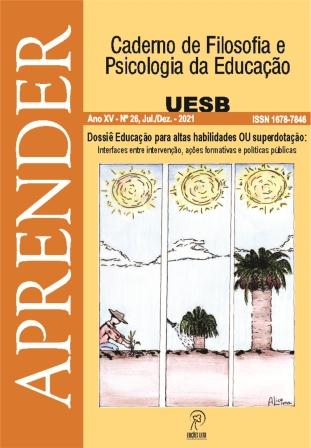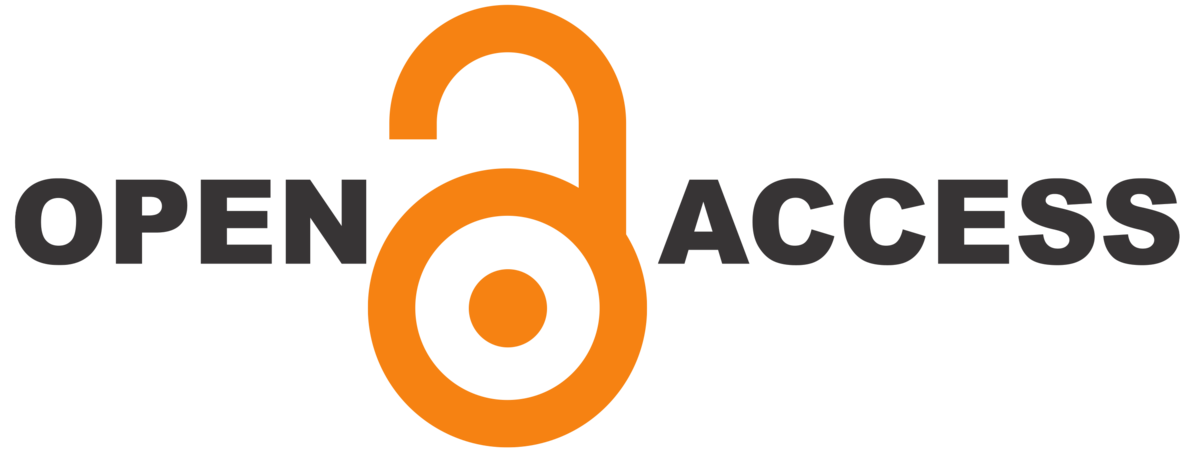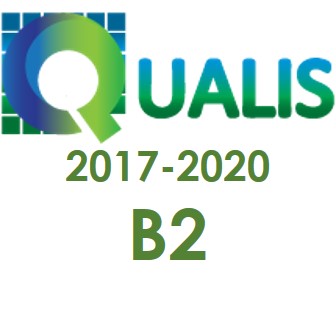SUPPORTING SOCIAL-EMOTIONAL NEEDS OF TWICE-EXCEPTIONAL STUDENTS: INTEGRATIVE REVIEW OF INTERNATIONAL LITERATURE
DOI:
https://doi.org/10.22481/aprender.i26.10042Keywords:
Dotação e talento, Dupla excepcionalidade, Estudantes duplamente excepcionais (2E)Abstract
Studies on twice exceptionality have grown in the literature on the education of the gifted and talented. Twice- exceptional students (2E) demonstrates high abilities in one or more areas associated with a disability and need socio-emotional and academic interventions that address both exceptionalities. The aim of this integrative review of the international literature, published from 2018 to 2020, was to identify care practices, specifically, in the socio-emotional sphere, for this audience. Thirteen articles were found (N=13). Of this total, only four (N=4) were results of empirical research. The results showed that (i) 2E students need different support, at school and in the family, aiming at cognitive, social and emotional development. (ii) There is little empirical evidence on specific interventions for this audience. (iii) Interventions, in the socio-emotional sphere, are necessary not only for the socio-emotional well-being of 2E students but also for the improvement of academic performance. (iv) Effective interventions must focus on talent and potential while providing support for academic and socio-emotional needs. It is possible to conclude that empirical and intervention research is needed that can establish causal relationships between strategies and outcomes in the socio-emotional and academic development of 2E students.
Downloads
References
AMRAN, Hannah; MAJID, Rosadah. Learning strategies for twice-exceptional students. International Journal of Special Education, v. 33, n.4, p. 954-976, 2019. Disponível em: https://files.eric.ed.gov/fulltext/EJ1219411.pdf. Acesso em: 05 jun.2021.
BALDWIN, Lois; BAUM, Susan; PERELES, Daphne; HUGHES, Claire. Twice-exceptional learners: the journey toward a shared vision. Gifted Child Today, v. 38, n. 4, p. 206-214, 2015. Disponível em: http://sagepub.com/journalsPermissions.nav. Acesso em: 15 abr. 2018.
BAUM, Susan. Introduction to twice-exceptional and special populations of gifted students. In BAUM, S. (Ed.). Twice-exceptional and special populations of gifted students. USA: National Association for Gifted Children, 2004, p. 23-33.
BAUM, Susan; SCHADER, Robin; HÉBERT, Thomas. Through a different lens: reflecting on strengths-based, talent-focused approach for twice-exceptional learners, Gifted Child Quarterly, v. 58, n. 4, p. 311-327, 2014. Disponível em: https://sci-hub.tw/https://doi.org/10.1177/0016986214547632. Acesso em: 29 mar. 2020.
BAUM, Susan; SCHADER, Robin; OWEN, Steven. To be gifted and learning disabled: strenght-based strategies for helping twice- exceptional students with LD, ADHD, ASD, and more. USA: Waco, TX: Prufrock Press, 2017.
BAUM; Susan; SCHADER, Robin. Twice-exceptionality: a field whose time has come. In: FUGATE, Matthew; BEHRENS, Wendy; BOSWELL, Cecelia. Understanding twice-exceptional learners: connecting research to practice. United States: Prufrock Press, 2020, p. 7-31.
BESNOY, Kevin; SWOSZOWSKI, Nicole; NEWMAN, Jane; FLOYD, Amanda; JONES, Parrish; BYRNE, Caitlin. The advocacy experiences of parents of elementary age, twice-exceptional children, Gifted Child Quarterly, v. 59, p. 108-123, 2015. Disponível em: https://sci-hub.se/https://doi.org/10.1177%2F0016986215569275. Acesso em: 18 jun. 2021.
BRASIL. Decreto 7.611/2011. Dispõe sobre a educação especial, o atendimento educacional especializado e dá outras providências. Brasília: MEC, 2011. Disponível em: http://www.prograd.ufu.br/sites/prograd.ufu.br/files/media/documento/8.6_-_decreto_ndeg_7.611-11_-_acessib.pdf . Acesso em: 01 ago. 2018.
CALLAHAN, Carolyn; MOON, Tonya. Sorting the wheat from the chaff: what makes for good evidence of effectiveness in the literature in gifted education?, Gifted Child Quarterly, v. 51, p. 305-319, 2007. Disponível em: https://sci-hub.se/https://doi.org/10.1177%2F0016986207306317. Acesso em: 24 jun. 2021.
COLEMAN, Mary Ruth; GALLAGHER, Shelagh. Meeting the needs of students with 2E: it takes a team. Gifted Child Today, v. 38, n. 4, p. 252-254, 2015. Disponível em: https://sci-hub.tw/https://doi.org/10.1177%2F1076217515597274. Acesso em: 12 mar. 2019.
CORDEIRO, Alexander; OLIVEIRA, Gloria Maria de; RENTERÍA, Juan Miguel; GUIMARÃES, Carlos Alberto. Revisão sistemática: uma revisão narrativa. Rev. Col. Bras. Cir., v. 34, n. 6, p. 428-431, 2007. Disponível em: https://www.scielo.br/j/rcbc/a/CC6NRNtP3dKLgLPwcgmV6Gf/?format=pdf&lang=pt. Acesso em: 25 mar. 2021.
FOLEY-NICPON, Megan; ALLMON, Allison; STINSON, Rebecca; SIECK, Barbara. Empirical Investigation of Twice-Exceptionality: Where Have We Been and Where Are We Going?, Gifted Child Quarterly, v. 55, n. 1, 2011, p. 3–17. Disponível em: http://gcq.sagepub.com. Acesso em: 15 abr. 2018.
FOLEY-NICPON, Megan; ASSOULINE, Susan; COLANGELO, Nicholas. Twice-Exceptional Learners: who needs to know what?, Gifted Child Quarterly, v. 57, n. 3, p. 169–180, 2013. Disponível em: https://sci-hub.se/https://doi.org/10.1177%2F0016986213490021. Acesso em: 18 jun. 2020.
FOLEY-NICPON, Megan; ASSOULINE, Susan. Counseling considerations for the twice-exceptional client, Journal of Counseling & Development, v. 93, n. 2, p. 202-211, 2015. Disponível em: https://sci-hub.se/https://doi.org/10.1002/j.1556-6676.2015.00196.x. Acesso em: 21 jun. 2021.
FOLEY-NICPON, Megan. The social and emotional development of twice-exceptional children. In: NEIHART, Maureen; PFEIFFER, Steven; CROSS, Tracy (Eds.). The social and emotional development of gifted children: what do we know?.Texas: Prufrock Press Inc Waco, 2016, p. 103-118.
FOLEY-NICPON, Megan; ASSOULINE, Susan. High ability students with coexisting disabilities: implications for school psychological practice, Psychology in the Schools, p. 1-12, 2020. Disponível em: https://sci-hub.se/https://doi.org/10.1002/pits.22342. Acesso em: 15 maio 2021.
GAGNÉ, Francoys. Giftedness and talent: reexamining a reexamination of the definitions, Gifted Child Quarterly, v. 29, n.3, p.103-112, 1985. Disponível em: https://www.researchgate.net/publication/254092876_Giftedness_and_Talent_Reexamining_a_Reexamination_of_the_Definitions. Acesso em: 10 jun. 2019.
KAUFMAN, Scott Barry. Twice exceptional: supporting and educating bright and creative students with learning difficulties. Canada: Oxford University Press, 2018.
KING, Emily Willians. Addressing the social and emotional needs of twice-exceptional students. TEACHING Exceptional Children, v. 38, n.1, p. 16-20, 2005. Disponível em: https://sci-hub.se/https://doi.org/10.1177%2F004005990503800103. Acesso em: 15 maio 2021.
LEE, Chin-Wen; RITCHOTTE, Jennifer. Seeing and supporting twice-exceptional learners. The Educational Forum, v. 82, n.1, p. 68-84, 2018. Disponível em: https://sci-hub.se/https://doi.org/10.1080/00131725.2018.1379580. Acesso em: 15 maio 2021.
LEE, Chin-Wen; RITCHOTTE, Jennifer. A case study evaluation of the implementation of twice-exceptional professional development in Colorado, Journal for the Education of the Gifted, p. 1-26, 2019. Disponível em: https://sci-hub.se/https://doi.org/10.1177%2F0162353219874440. Acesso em: 15 maio 2021.
LEROUX, Janice; LEVITT‐PERLMAN, Marla. The gifted child with attention deficit disorder:An identification and intervention challenge. Roeper Review, v. 22, n. 3, p. 171–176, 2000. Disponível em: https://sci-hub.se/https://doi.org/10.1080/02783190009554028. Acesso em: 18 jun. 2018.
LOVECKY, Deirdre. Different minds: gifted children with AD/HD, Asperger Syndrome, and other learning deficits. London: Jessica Kingsley Publishers, 2004.
MAYES, Renae; HINES, Erik; BIBBS, Deidra; RODMAN, Jennifer. Couselors and psychologists mentoring gifted black males with disabilities to foster college and career readiness, Gifted Child Today, v.42, n.3, p. 157-164, 2019. Disponível em: https://sci-hub.se/https://doi.org/10.1177%2F1076217519843150. Acesso em: 15 maio 2021.
MAYES, Renae. College and career readiness groups for gifted black students with disabilities, The Journal for Specialists in Group Work, v.45, n. 3, p. 200-212, 2020. Disponível em: https://sci-hub.se/https://doi.org/10.1080/01933922.2020.1789790. Acesso em: 17 jun. 2021.
MOHAMMED, Amra. Twice-exceptionality in the Kingdom of Saudi Arabia: policy recommendations for advances in Special Education, International Journal Of Special Education, v. 33, n. 2, p. 397-415, 2018. Disponível em: https://files.eric.ed.gov/fulltext/EJ1185585.pdf. Acesso em: 15 maio 2021.
NEIHART, Maureen. Identifying and providing services to twice exceptional children. In: PFEIFER, Steven (Ed.). Handbook of giftedness in children: psycho-educational theory, research, and best practices.USA: Springer, 2008, p. 115-137.
OWENS, Charissa Owens; FORD, Donna; LISBON, April; OWENS, Michael. Shifting paradigms to better serve twice-exceptional african-american learners, Behavioral Disorders, v. 41, n. 4, p. 196-208, 2016. Disponível em: https://sci-hub.se/https://doi.org/10.17988%2Fbedi-41-04-196-208.1. Acesso em: 20 maio 2021.
PARK, Soeun; FOLEY-NICPON, Megan; BOLENBAUGH, Mallory; CHOATE, Alyssa. “Nothing fits exactly”: experiences of Asian American parents of twice-exceptional children, Gifted Child Quarterly, p. 1-14, 2018. Disponível em: https://sci-hub.se/https://doi.org/10.1177%2F0016986218758442. Acesso em: 16 jun. 2021.
RANGNI, Rosemeire; COSTA, Maria Piedade. Altas Habilidades/superdotação e deficiência: reflexões sobre o duplo estigma, Educar em Revista, 53, 187-199, 2014. Disponível em: https://doi.org/10.1590/0104-4060.33859. Acesso em: 10 jun. 2021.
REIS, Sally; BAUM, Susan; BURKE, Edith. An Operational Definition of Twice- Exceptional Learners: Implications and Applications, Gifted Child Quarterly, v. 58, n. 3, 2014, p. 217–230. Disponível em: http://journals.sagepub.com.ez31.periodicos.capes.gov.br/doi/pdf/10.1177/0016986214534976. Acesso em: 15 abr. 2018.
REIS, Sally; RENZULLI, Sara. Parenting for strenghts: embracing the challeges of raising children identified as twice exceptional, Gifted Education International, p. 1-13, 2020. Disponível em: https://sci-hub.se/https://doi.org/10.1177%2F0261429420934435. Acesso em: 16 jun. 2021.
RENZULLI, Sara; GELBAR, Nicholas. Leadership roles for school counselors in identifying and supporting twice-excepctional (2E) students, Professional School Counseling, v. 23, n. 1, p. 1-11, 2020. Disponível em: https://sci-hub.se/https://doi.org/10.1177%2F2156759X20940636. Acesso em: 15 maio 2021.
RITCHOTTE, Jennifer; ZAGLAWAN, Hasan. Coaching parentes to use higher level questioning with their twice-exceptional children, Gifted Child Quarterly, p.1-16, 2019. Disponível em: https://sci-hub.se/https://doi.org/10.1177%2F0016986218817042. Acesso em: 17 jun. 2021.
LIN, Chin-Lan; FOLEY-NICPON, Megan. Integrating creativity into career interventions for twice exceptional students in the United States: a review of recent literature, Gifted and Talented International, Disponível em: https://sci-hub.se/https://doi.org/10.1080/15332276.2019.1704667. Acesso em: 17 jun. 2021.
SCORSOLINI-COMIN, Fábio; SANTOS, Manoel. Psicologia Positiva e os Instrumentos de Avaliação no Contexto Brasileiro, Psicologia: Reflexão e Crítica, v. 23, n. 3, p. 440-448, 2010. Disponível em: https://www.scielo.br/j/prc/a/QLdLwrhpwV9WJXrcPCTPV9v/abstract/?lang=pt. Acesso em: 01 jul. 2021.
SEVERINO, Antônio. Metodologia do trabalho científico. 22.ed. São Paulo: Cortez, 2002.
SOUZA, Marcela; SILVA, Michelly; CARVALHO, Rachel. Revisão integrativa: o que é e como fazer. Einsten, São Paulo, v. 8, n. 1, p. 102-106, 2010. Disponível em: https://www.scielo.br/j/eins/a/ZQTBkVJZqcWrTT34cXLjtBx/?format=pdf&lang=pt. Acesso em: 20 maio 2021.
STETLER, Cheryl; MORSI, Deborah; RUCKI, Sheila Brought; CORRIGAN, Barbara; FITZGERALD, Jan; GIULIANO, Karen; HAVENER, Patricia; SHERIDAN, Ann. Utilization-focused integrative reviews in a nursing service, Applied Nursing Research, v. 11, n. 4, p. 195-206, 1998. Disponível em: https://www.researchgate.net/publication/13434441_Utilization-focused_integrative_reviews_in_a_nursing_service. Acesso em: 14 mar. 2021.
TRAIL, Beverly. Twice-exceptional gifted children: understanding, teaching and counseling gifted students. USA: Prufrock Academic Press, 2011.
WEBB, James; AMEND, Edward; BELJAN, Paul; WEBB, Nadia; KUZUJANAKIS, Marianne; OLENCHAK, Richard; GOERSS, Jean. Misdiagnosis and dual diagnoses of gifted children and adults: ADHD, Bipolar, OCD, Asperger´s, Depression, and other disorders. 2. ed. Tucson, AZ: Great Potential Press, 2016.
WHITTEMORE, Robin; KNAFL, Kathleen. The integrative review: updated methodology, Journal of Advanced Nursing, v. 52, n. 5, p. 546-553, 2005. Disponível em: https://citeseerx.ist.psu.edu/viewdoc/download?doi=10.1.1.465.9393&rep=rep1&type=pdf. Acesso em: 15 maio 2021.
WU, I-Chen; LO, Owen; TSAI, Kuei-Fang. Learning experiences of highly able learners with ASD: using a success case method, Journal for the Education of the Gifted, v. 42, n. 3, p.216-242, 2019. Disponível em: https://sci-hub.se/https://doi.org/10.1177%2F0162353219855681. Acesso em: 15 maio 2021.
Downloads
Published
How to Cite
Issue
Section
License
Copyright (c) 2021 APRENDER - Caderno de Filosofia e Psicologia da Educação

This work is licensed under a Creative Commons Attribution-ShareAlike 4.0 International License.












